Resources & Articles
Interview with CA Moringa Growers and Entrepreneurs
Join us to learn more about Tony Lopez and his work and experience with growing moringa in the Imperial Valley, CA. Learn about the plant’s properties (drought/heat tolerance) that make it ideal for cultivation in this desert region. We discuss favorite ways to eat moringa, different cultivation and processing methods, its use as a biofertilizer and biofeed, and its potential to support human health and wellness for the local community.
Join us to learn more about Mariko Gifford and her work with moringa, mentorship, product development, education, and advocacy for the community. Learn more at https://moringaforlife.com/
Join us to learn more about James Brady and his work with moringa, urban agriculture, food security, Moringatang, co-scriptions for health and advocacy for the community. More info at: https://www.con10u2farm.com/
Join us to learn more about Christen Brown and his work with moringa, sickle cell education, and advocacy for the community. Learn more at https://www.creationofsociety.com/
Moringa in the News
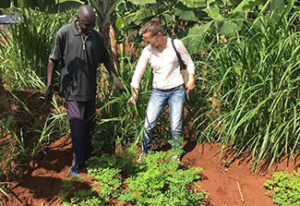
Scientist studies the moringa plant's medicinal, nutritional benefits
The moringa plant has been used for centuries throughout the tropics for medicinal purposes and to improve nutrition, especially in children. A Fogarty-funded researcher is helping to provide the scientific evidence behind the so-called “superfood,” as well as enabling farmers to increase their moringa crop yield and improve the purity of the end product, a powdered diet supplement.
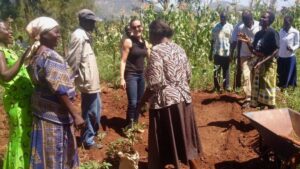
Planting a Seed: What collaborative moringa reseach looks like on the ground
Carrie Waterman, a nutrition researcher in the College of Agricultural and Environmental Sciences, is one of the most recent UC Davis faculty members to receive a Global Affairs Seed Grant for her proposal “From California to East Africa: Building Collaborations for Innovative Agricultural and Health Development.”
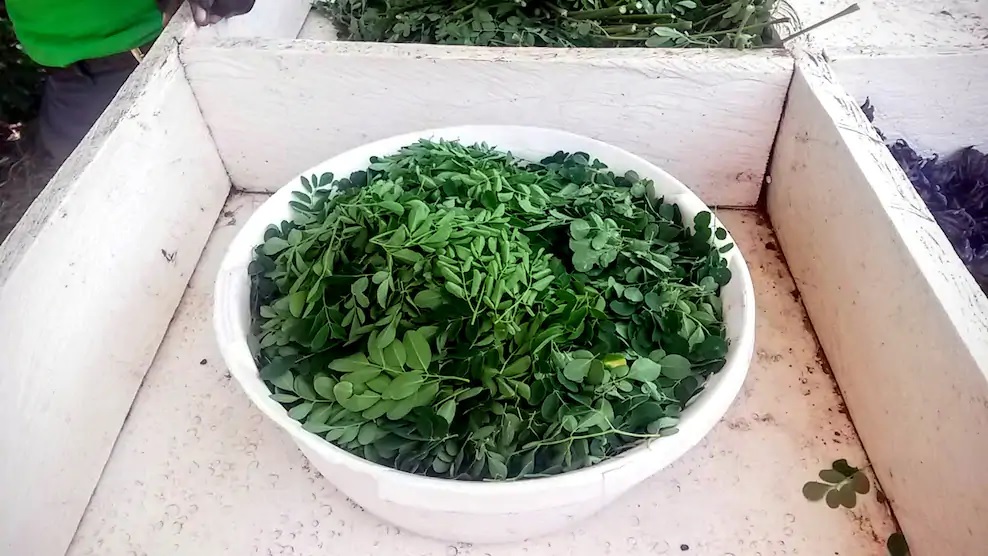
Moringa the next superfood
Every part of the plant is edible — leaves, pods, seeds, flowers, even its root. The feathery leaves alone pack a powerful protein punch nearly 30 percent by dry weight. Legumes don’t even have that much protein, nor all the essential amino acids. The leaves are high in vitamins A and C, calcium, zinc, iron, magnesium and potassium.

The health benefits of moringa – 2018’s superfood
Have you had your Moringa today? The southeast Asian tree is making headlines as a miracle cure for inflammatory disease and nutritional value. Cristina Mendonsa reports on the UC Davis researcher currently in Kenya solving a number of problems with this fast-growing plant.
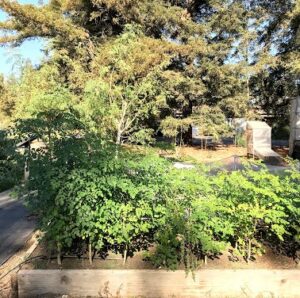
The growing potential for moringa
Recent efforts strive to research moringa’s benefits and spread awareness within the U.S.
Although predominantly found in warmer regions such as India and Africa, moringa oleifera, a cruciferous plant, seems to be picking up momentum within the United States. Various research studies are being conducted to evaluate its many uses.
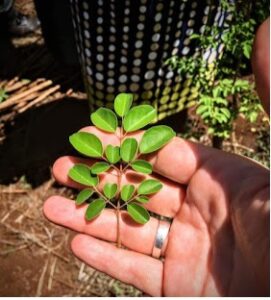
Moringa taking root in US as new superfood
Experts say moringa is a true superfood and one of the world’s most nutritious plants. Waterman is working with researchers on a moringa project in East Africa. The hardy plant thrives in challenging environments and may be a tool to combat global hunger.
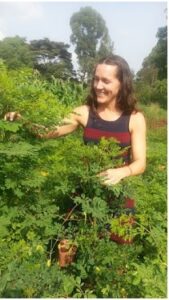
Moringa’s health benefits in lowering inflammation
Moringa’s proposed anti-inflammatory properties being studied are important because of the growing overweight and obese global population. Malnutrition (both under- and overnutrition) is a major risk factor for noncommunicable chronic diseases, which include four core groups: diabetes, cancer, cardiovascular and respiratory diseases, all of which are closely linked with low-grade chronic inflammation. According to the 2016 Global Nutrition Report, nearly 2 billion of the 5 billion adults worldwide are overweight or obese and one in 12 has type 2 diabetes.
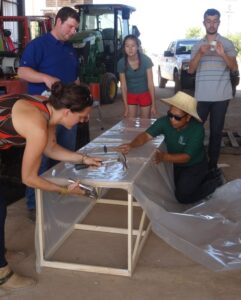
Explore tools that UC researchers use with smallholder farmers around the world
Planted in a corner of the UC Davis campus is a display of technologies and vegetable crops that researchers with the Horticulture Innovation Lab have been using with farmers in Africa, Asia and Central America. Led by UC ANR’s Elizabeth Mitcham in the UC Davis Department of Plant Sciences, this program harnesses the agricultural expertise of a network of U.S. university researchers to improve how farmers in developing countries grow fruits and vegetables.
Moringa Publications
If plants could be superheroes, the Moringa (Moringa oleifera) tree would be one of them. Although native to the foothills of the Himalayas in India, moringa can thrive in most tropical and subtropical regions. It is tolerant, grows rapidly, has leaves that can be used as a biofertiliser , and has seeds that can help purify …
As the increase in sale and consumption of moringa (Moringa oleifera) leaf-based products continues to grow, there is a need to review current scientific research, increase understanding of moringa’s potential health benefits, share current knowledge on processing that effects beneficial components, and caution …
This review provides perspectives on the current regulatory status of moringa (Moringa oleifera) products in selected countries and warrants caution against moringa retailers making false and unjustified health claims for their products. Furthermore, the recent ban on the sale of moringa products in Brazil is discussed. Lastly…
Moringa seeds have been used traditionally in the management of type 2 diabetes mellitus (T2DM) and contain potent bioactive isothiocyanates. This study evaluated the efficacy of an isothiocyanate-rich moringa seed extract in delaying the onset of T2DM in UC Davis T2DM rats, a well validated model which closely …
Moringa (Moringa oleifera Lam.) seed extract (MSE) has anti-inflammatory and antioxidant activities. We investigated the effects of MSE enriched in moringa isothiocyanate-1 (MIC-1), its putative bioactive, on ulcerative colitis (UC) and its anti-inflammatory/antioxidant mechanism likely mediated through Nrf2-…
The natural personal care market has seen strong growth since 2008, which is projected to continue worldwide.1 To meet consumer demand for natural personal care products, leading brands will continue to develop botanically derived products that can be produced sustainably and organically. Moringa oleifera …